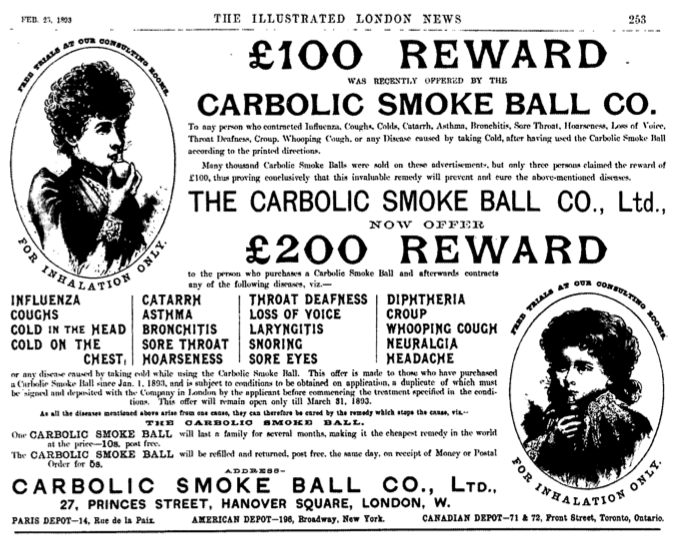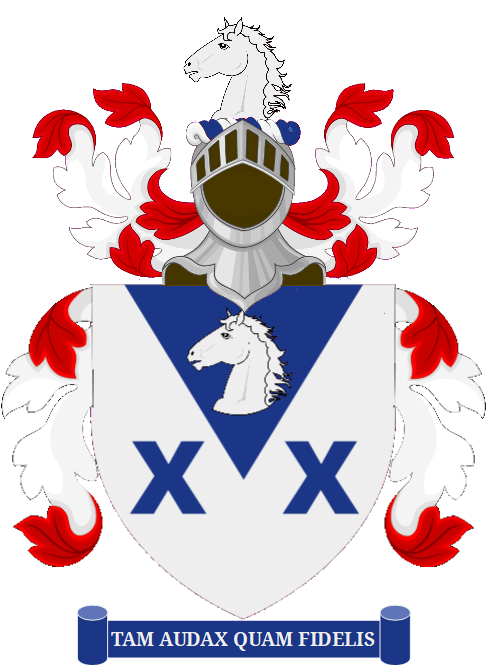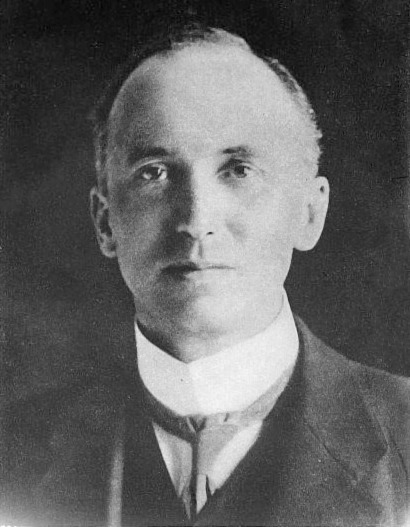|
Errington V Wood
is an English contract law and English land law judicial decision of the Court of Appeal concerning agreement and the right to specific performance of an assurance that is relied on. Facts Mr Errington in 1936 bought a house in Milvain Avenue, Newcastle upon Tyne, for his son and daughter in law, paying £250, and the remaining £500 coming from a mortgage, paid off with 15 s a week by the newly weds. Mr Errington promised them they could stay in occupation as long as they paid the mortgage and that when all the instalments were paid it would be theirs. He gave her the building society book and said, ‘Don't part with this book. The house will be your property when the mortgage is paid.’ He died and the son left to move in with his mother. The mother sought possession from the daughter in law. The judge dismissed the claim for possession. Judgment The three-judge panel in the Court of Appeal unanimously held that the daughter in law did not have to move out of the house, b ... [...More Info...] [...Related Items...] OR: [Wikipedia] [Google] [Baidu] |
Court Of Appeal Of England And Wales
The Court of Appeal (formally "His Majesty's Court of Appeal in England", commonly cited as "CA", "EWCA" or "CoA") is the highest court within the Senior Courts of England and Wales, and second in the legal system of England and Wales only to the Supreme Court of the United Kingdom. The Court of Appeal was created in 1875, and today comprises 39 Lord Justices of Appeal and Lady Justices of Appeal. The court has two divisions, Criminal and Civil, led by the Lady Chief Justice and the Master of the Rolls respectively. Criminal appeals are heard in the Criminal Division, and civil appeals in the Civil Division. The Criminal Division hears appeals from the Crown Court, while the Civil Division hears appeals from the County Court, High Court of Justice and Family Court. Permission to appeal is normally required from either the lower court or the Court of Appeal itself; and with permission, further appeal may lie to the Supreme Court. Its decisions are binding on all courts, ... [...More Info...] [...Related Items...] OR: [Wikipedia] [Google] [Baidu] |
Thomas V Morrall
''Thomas v Sorrell'' 673EWHC (KB) J85is an English law case, concerning licences. It has been cited in cases in relation to land but has no direct link to land e.g. occupation. It was landmark decision in the law of alcohol licensing (licensing law) and summarizes centuries of law as to licences — it sets out the bold principles of licences of many kinds. Facts Thomas Sorrell owned a tavern in the village of Stepney, some east of the City of London. He was prosecuted by Edward Thomas, acting for the Crown, who demanded that Sorrell pay a penalty to the Crown of £450 for selling having sold wine Wine is an alcoholic drink made from Fermentation in winemaking, fermented fruit. Yeast in winemaking, Yeast consumes the sugar in the fruit and converts it to ethanol and carbon dioxide, releasing heat in the process. Wine is most often made f ... without a licence, contrary to the Taxation Act 1660. Sorrell claimed that he had a licence in his capacity as a member of the ... [...More Info...] [...Related Items...] OR: [Wikipedia] [Google] [Baidu] |
Carlill V Carbolic Smoke Ball Co
''Carlill v Carbolic Smoke Ball Company'is an English contract law decision by the Court of Appeal, which held an advertisement containing certain terms to get a reward constituted a binding unilateral offer that could be accepted by anyone who performed its terms. It is notable for its treatment of contract and of puffery in advertising, for its curious subject matter associated with medical quackery, and how the influential judges (particularly Lindley and Bowen) developed the law in inventive ways. ''Carlill'' is frequently discussed as an introductory contract case, often one of the first cases a law student studies in the law of contract. The case concerned a purported flu remedy called the "carbolic smoke ball". The manufacturer advertised that buyers who found it did not work would be awarded £100, a considerable amount of money at the time. The company was found to have been bound by its advertisement, which was construed as an offer which the buyer, by using the sm ... [...More Info...] [...Related Items...] OR: [Wikipedia] [Google] [Baidu] |
Ronald Roxburgh
Sir Ronald Francis Roxburgh (19 November 1889 – 19 August 1981) was a British barrister, High Court judge, and writer on international law and on the history of the Inns of Court. Life Born at Eastbourne, Roxburgh was the only son of Francis Roxburgh (1850-1936) and Annie Gertrude Mortlock (1857-1948).Roxburgh, Sir Ronald Francis in ''Who Was Who'' (published online December 2007, e-) After graduating from University of Cambridge, Cambridge, Roxburgh was called to the bar from the Middle Temple in 1914, appointed King's Counsel in 1933, became a Justice of the Chancery Division of the High Court of Justice in 1946, knighted the same year, and retired in 1960. In his early years as a barrister he worked with the German jurist L. F. L. Oppenheim, a founder of the discipline of international law, who was Whewell P ... [...More Info...] [...Related Items...] OR: [Wikipedia] [Google] [Baidu] |
Rent Acts
Rent regulation in England and Wales is the part of English land law that creates rights and obligations for tenants and landlords. The main areas of regulation concern: * the mechanisms for regulating prices (historically called "rent control"). Since the Housing Act 1980 (c. 51), prices are generally left for landlords to fix except in the "affordable" sector where councils and housing associations manage around 4.4 million homes which are subject to rent regulation. * the reasons that a person can be evicted. Since the Housing Act 1996 (c. 52), most tenancies can be terminated on their expiry for any reason. * the obligations to repair and maintain the property, under the Landlord and Tenant Act 1985 (c. 70). In general, people renting homes or real property may agree with a landlord to any contract terms they like, but some rights and duties are made compulsory. Historically, the United Kingdom sought to ensure fair rents, prevent evictions without a fair reason, and pl ... [...More Info...] [...Related Items...] OR: [Wikipedia] [Google] [Baidu] |
Raymond Evershed, 1st Baron Evershed
Francis Raymond Evershed, 1st Baron Evershed, Her Majesty's Most Honourable Privy Council, PC (8 August 1899 – 3 October 1966) was a British judge who served as Master of the Rolls, and subsequently became a Lord of Appeal in Ordinary, Law Lord. Background and education Evershed was the son of Frank Evershed, a brewer and sportsman, and his wife Florence Helen, daughter of Thomas Lowe. He was educated at Clifton College and Balliol College, Oxford. During the First World War he was a Second Lieutenant in the Royal Engineers. In January 1923, he was Call to the bar, called to the bar by Lincoln's Inn. He then practiced at the Chancery bar. Legal and judicial career Evershed was made a King's Counsel, K.C. in 1933 and a Bencher of Lincoln's Inn in 1938. He became a High Court of Justice, High Court Judge in 1944 when he was knighted, and Lord Justice of Appeal in 1947, when he was also made a Her Majesty's Most Honourable Privy Council, Privy Counsellor. Between 1949 and 1962, h ... [...More Info...] [...Related Items...] OR: [Wikipedia] [Google] [Baidu] |
John Simon, 1st Viscount Simon
John Allsebrook Simon, 1st Viscount Simon, (28 February 1873 – 11 January 1954) was a British politician who held senior Cabinet posts from the beginning of the First World War to the end of the Second World War. He is one of three people to have served as Home Secretary, Foreign Secretary and Chancellor of the Exchequer, the others being Rab Butler and James Callaghan. He also served as Lord Chancellor, the most senior position in the British legal system. Beginning his career as a Liberal (identified initially with the left wing but later with the right wing of the party), he joined the National Government in 1931, creating the Liberal National Party in the process. At the end of his career, he was essentially a Conservative. Background and education Simon was born in a terraced house on Moss Side, Manchester, the eldest child and only son of Edwin Simon (1843–1920) and wife Fanny Allsebrook (1846–1936). His father was a Congregationalist minister, like three of hi ... [...More Info...] [...Related Items...] OR: [Wikipedia] [Google] [Baidu] |
Winter Garden Theatre V Millenium
''Winter Garden Theatre (London) Ltd v Millennium Productions Ltd'' 948AC 173 is an English land law case, concerning licences in land. Facts At the Winter Garden Theatre (now the Gillian Lynne Theatre on Drury Lane) the owner promised Millennium Productions Ltd that it could use the theatre for six months, with an option to renew for another six months, and after that it could continue for a flat weekly price of £300. Millennium would have to give a month's notice if it wished to terminate, but Winter Garden's obligations were not stated. The licence continued for over a year, to September 1945. Then Millennium made a contract with artists to show '' Young Mrs Barrington'', from 5 September till January 1946, but on 13 September Winter Garden decided to revoke the licence, giving a month's notice, and demanding it leave on 13 October. Millennium argued that there was a breach of contract and that Winter Garden could only revoke if Millennium was in breach of contract, or that t ... [...More Info...] [...Related Items...] OR: [Wikipedia] [Google] [Baidu] |
Thompson V Park
''Thompson v Park'' 944KB 408 is an English law case, concerning licenses in land. Facts Mr. Thompson, the school's headmaster, wanted an injunction for Mr. Park to leave his school, after Mr. Park had forced his way back into the premises which they had amalgamated as a joint venture together at Broughton Hall, Eccleshall, Staffordshire. Park had a class of 25 pupils before relations broke down, and Thompson had revoked the license. Park countered that he had been denied of his investment. Judgment Goddard LJ granted the injunction because of the behavior Park demonstrated.944KB 408, 409-410 Not followed in *'' Verrall v Great Yarmouth BC'' 981QB 202; EWCA Distinguished in *''Luganda v Service Hotels Ltd'' 9692 Ch 209; EWCA See also *English land law *English tort law English tort law concerns the compensation for harm to people's rights to health and safety, a clean environment, property, their economic interests, or their reputations. A "tort" is a wrong in civil la ... [...More Info...] [...Related Items...] OR: [Wikipedia] [Google] [Baidu] |
Prima Facie
''Prima facie'' (; ) is a Latin expression meaning "at first sight", or "based on first impression". The literal translation would be "at first face" or "at first appearance", from the feminine forms of ' ("first") and ' ("face"), both in the ablative case. In modern, colloquial, and conversational English, a common translation would be "on the face of it". The term ''prima facie'' is used in modern legal English (including both civil law and criminal law) to signify that upon initial examination, sufficient corroborating evidence appears to exist to support a case. In common law jurisdictions, a reference to ''prima facie evidence'' denotes evidence that, unless rebutted, would be sufficient to prove a particular proposition or fact. The term is used similarly in academic philosophy. Most legal proceedings, in most jurisdictions, require a ''prima facie'' case to exist, following which proceedings may then commence to test it, and create a ruling. The similar ''ex facie'', ... [...More Info...] [...Related Items...] OR: [Wikipedia] [Google] [Baidu] |
Wilfrid Greene, 1st Baron Greene
Wilfrid Arthur Greene, 1st Baron Greene,First name spelt Wilfred in some sources (30 December 1883 – 16 April 1952) was a British lawyer and judge, noted for creating two crucial principles of administrative law, the Wednesbury doctrine and the Carltona doctrine. Early life, education and military service Greene was born in Beckenham, Kent, son of Arthur Werguelin Greene, a solicitor, and his wife Katherine Agnes Fooke. He was educated at Westminster School; he was one of the first Roman Catholic pupils to be admitted to the School. He graduated from Christ Church, Oxford in 1906 with a BA; he had the reputation of being "a formidable scholar". He was admitted to Inner Temple in 1908 entitled to practice as a Barrister-at-Law. He married Nancy Wright in 1909. He gained the rank of captain in the service of the 2/1st Battalion, Oxfordshire and Buckinghamshire Light Infantry. He fought in the First World War between 1914 and 1918. He was decorated with the award of the MC ... [...More Info...] [...Related Items...] OR: [Wikipedia] [Google] [Baidu] |
Master Of The Rolls
The Keeper or Master of the Rolls and Records of the Chancery of England, known as the Master of the Rolls, is the President of the Court of Appeal (England and Wales)#Civil Division, Civil Division of the Court of Appeal of England and Wales and Head of Civil Justice. As a judge, the Master of the Rolls is second in seniority in England and Wales only to the Lord Chief Justice. The position dates from at least 1286, although it is believed that the office probably existed earlier than that. The Master of the Rolls was initially a clerk responsible for keeping the "Rolls" or records of the Court of Chancery, and was known as the Keeper of the Rolls of Chancery. The Keeper was the most senior of the dozen Chancery clerks, and as such occasionally acted as keeper of the Great Seal of the Realm. The post evolved into a judicial one as the Court of Chancery did; the first reference to judicial duties dates from 1520. With the Judicature Act 1873, which merged the Court of Chancery ... [...More Info...] [...Related Items...] OR: [Wikipedia] [Google] [Baidu] |




